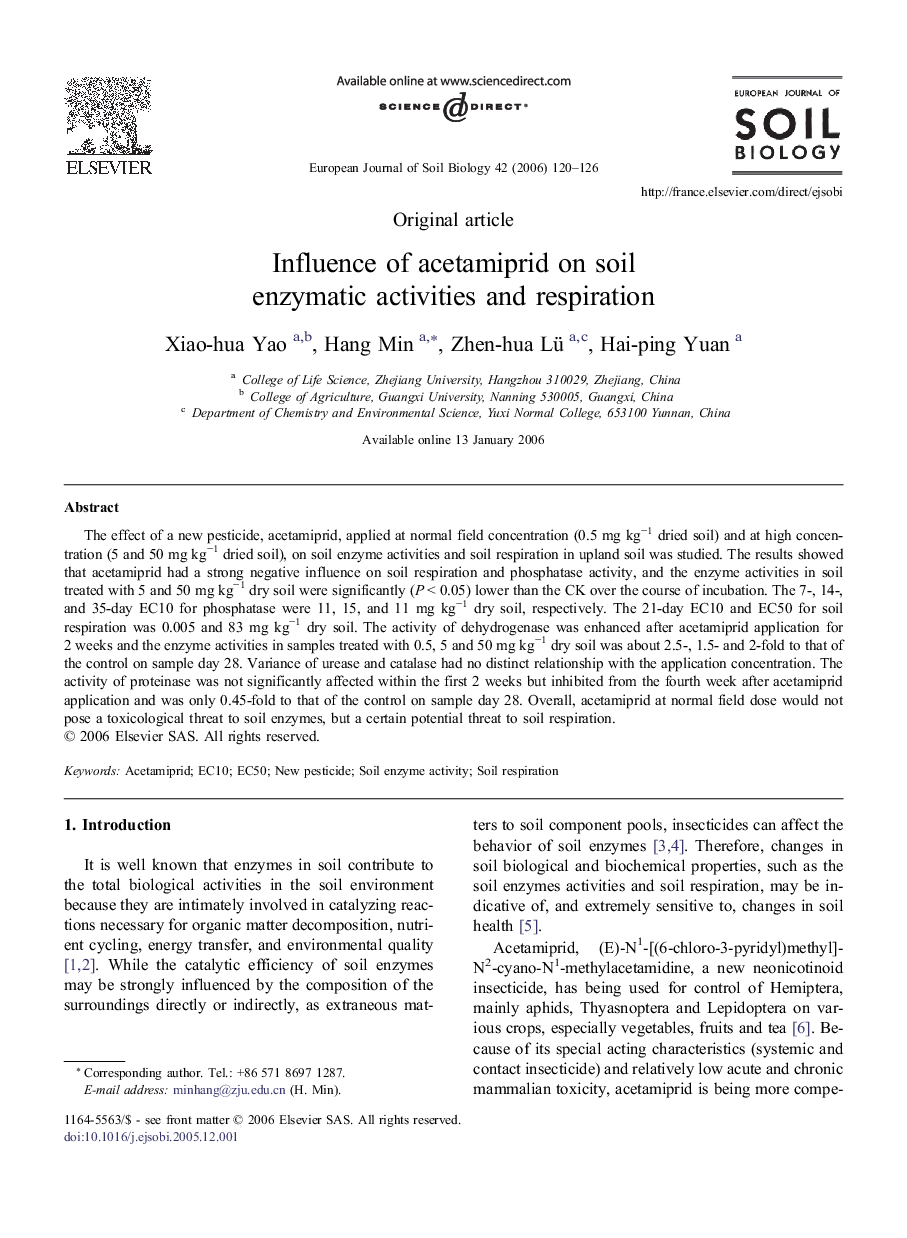| Article ID | Journal | Published Year | Pages | File Type |
|---|---|---|---|---|
| 4392559 | European Journal of Soil Biology | 2006 | 7 Pages |
Abstract
The effect of a new pesticide, acetamiprid, applied at normal field concentration (0.5 mg kgâ1 dried soil) and at high concentration (5 and 50 mg kgâ1 dried soil), on soil enzyme activities and soil respiration in upland soil was studied. The results showed that acetamiprid had a strong negative influence on soil respiration and phosphatase activity, and the enzyme activities in soil treated with 5 and 50 mg kgâ1 dry soil were significantly (P < 0.05) lower than the CK over the course of incubation. The 7-, 14-, and 35-day EC10 for phosphatase were 11, 15, and 11 mg kgâ1 dry soil, respectively. The 21-day EC10 and EC50 for soil respiration was 0.005 and 83 mg kgâ1 dry soil. The activity of dehydrogenase was enhanced after acetamiprid application for 2 weeks and the enzyme activities in samples treated with 0.5, 5 and 50 mg kgâ1 dry soil was about 2.5-, 1.5- and 2-fold to that of the control on sample day 28. Variance of urease and catalase had no distinct relationship with the application concentration. The activity of proteinase was not significantly affected within the first 2 weeks but inhibited from the fourth week after acetamiprid application and was only 0.45-fold to that of the control on sample day 28. Overall, acetamiprid at normal field dose would not pose a toxicological threat to soil enzymes, but a certain potential threat to soil respiration.
Related Topics
Life Sciences
Agricultural and Biological Sciences
Soil Science
Authors
Xiao-hua Yao, Hang Min, Zhen-hua Lü, Hai-ping Yuan,
